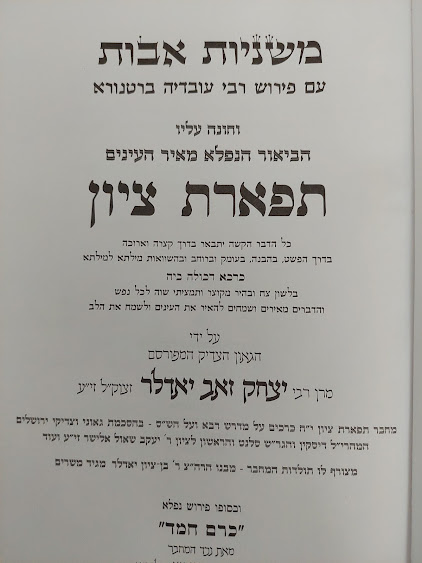Sometimes it is good to seek the counsel of others. This is one such occasion.
A few days ago I was asked if I might consider writing another book on Avot. Unlike the usual commentaries, this book would be an appreciation of Avot viewed through the medium of the seven Harry Potter novels. At present I am very much in two minds about taking this suggestion any further. My thoughts on the topic can be divided as follows:
In favour of the book
- The seven Harry Potter books are probably the best-known novels in history. By 2019 their aggregated sales passed the 500 million mark and they have been translated into more than 80 languages. In discussing the morals and ethical positions taken by the characters, the writer can be assured of the familiarity of readers with its case studies and also be sure, at least initially, of a fairly high interest level.
- Many of the main characters in the series are quite nuanced, leading the reader to form an opinion of them which must later be revised. Likewise, many of the episodes represent opportunities in which characters have either applied principles from Avot or have conspicuously failed to do so.
- A considerable proportion of younger readers find traditional religious-interest story books hard to relate to, since they deal with kings, inn-keepers, wagon-drivers and tzaddikim who are not easily identified with figures in their own experience. Harry Potter however deals with schools and teachers, the problems faced in growing up and dealing with adults, and so on.
- The notion of discussing critically the conduct of fictional characters is by no means unprecedented and can be a powerful way of conveying a mussar message. A recent example is Into the Woods, a movie in which characters from children's nursery tales are dramatically called to account for their often wrongful or immoral actions.
- There is a risk that, irrespective of the quality and nature of the text, the book may create the impression of seeking to trivialise Avot and its many teachings.
- The book might be judged as being no more than an attempt to cash in on the popularity of Harry Potter.
- While many major issues and topics are reflected in the text of one or more of the seven-book series, there are some mishnayot and baraitot that have no obvious relevance to them.
- The book might not so much attract readers to think more about Avot and internalise its message but instead drive them back to reading and re-reading Harry Potter and other works of juvenile fantasy.
- Many parents are uncomfortable about their children reading books which lack any specifically Jewish content but which do discuss practices of witchcraft and wizardry that are plainly not encouraged by the Torah.
- On a personal note, when this proposal was put to me, I experienced an uncomfortably high level of pride at having been asked which left me wondering whether, if I were to write this book, I would be doing so with the right motives.
So, blog readers, do please let me know: should I take the path of prudent caution and avoid this project like the plague -- or should I go ahead and embrace it with all my usually infectious enthusiasm?














